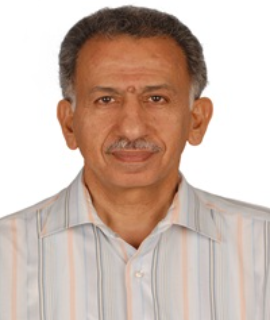Title : Synthesis of new water-soluble platinum(II) complexes by Phase Transfer Catalysis
Abstract:
a) Synthesis of new Platinum(II) Complexes by Phase Transfer Catalysis.
Platinum(II) complexes have been synthesized by many different methods. In general, square-planar platinum(II) complexes contain stabilizing ligands (such as bipyridine, 1, 10-phenanthroline, 1, 5-cyclooctadiene, tri-alkyl or-aryl phosphines) and halides or organic groups. These complexes are not soluble in water at all. Therefore, Phase Transfer Catalysts (PTC) has become recognized as useful tools for performing reaction between anions (and certain neutral molecules and transition metal complexes) and organic substrates. PTC is needed because many anions (in the form of their salts) and neutral compounds are soluble in water and not in organic solvents, whereas the organic reactants are not usually soluble in water.
b) Synthesis of new water-soluble platinum(II) complexes by Phase Transfer Catalysis.
A great deal of attention has been paid to the search for water-soluble transition metal complexes and related catalysts since water has a variety of properties that set it apart from most organic solvents. Because most organometallic compounds have limited water solubility, the synthesis of novel water soluble transition metal complexes is central to the development of new complexes.
Platinum complexes are not soluble in water at all. The synthesis of novel water soluble transition metal complexes is central to the development of new complexes. The synthesis of water soluble platinum complexes, as most of the work in the literature, is to convert the stabilizing ligand into water soluble ligand having SO¬3Na group for example. In this work we are modifying this method by replacing the halides by the water soluble ligand [8-hydroxy-7-(4-sulfo-naphthylazo)-5-quinoline sulfonic acid. disodium salt] (HSNQ).
c) Phase Transfer Catalysis.
As the chemical industry strives to increase efficiency, improve process safety, and reduce environmental impact, Phase Transfer Catalysts (PTC) has become recognized as useful tools for achieving these goals. Phase – Transfer Catalysis is useful primarily for performing reaction between anions and organic substrates. PTC is needed because many anions and neutral compounds are soluble in water and not in organic solvents, whereas the organic reactants are not usually soluble in water. The PTC acts as a shuttling agent by extracting the anion or neutral compound from the aqueous (or solid) phase into the organic reaction phase (or interfacial region) where the anion or neutral compound can freely react with the organic reactant already located in the organic phase. Reactivity is further enhanced, sometimes by orders of magnitude, because once the anion or neutral compound is in the organic phase, it has very little(if any) hydration or solvation associated with it, thereby greatly reducing the energy of activation. It has been shown that there are several advantages using PTC such as: An increased reaction rate, a lower reaction temperature, avoiding the need for expensive anhydrous or aprotic solvents, and the use of water together with an organic solvent as reaction medium.



